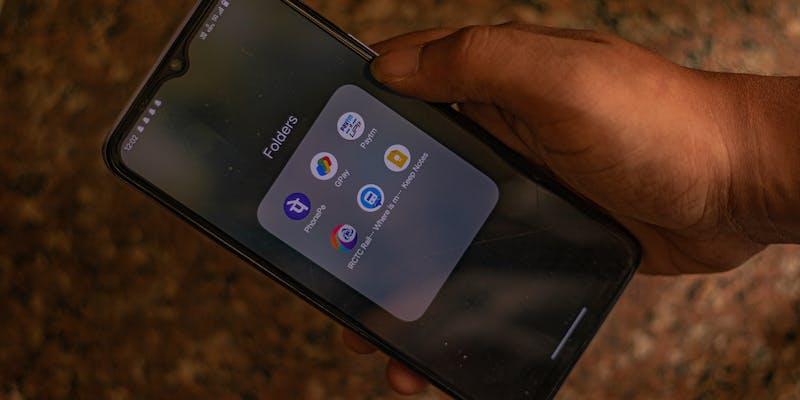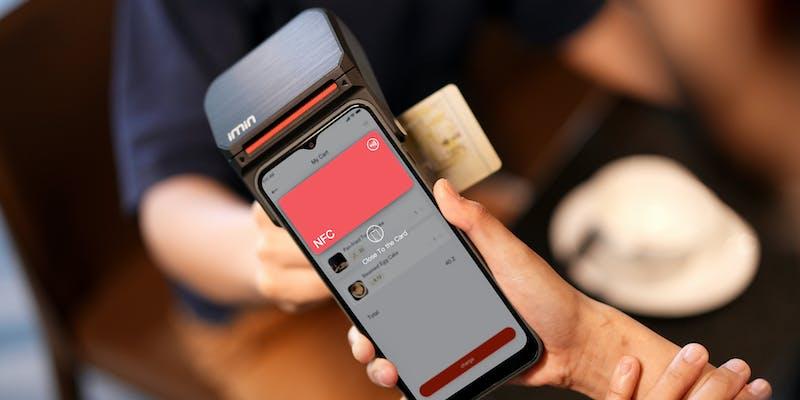Five PayPal Alternatives You Should Consider
Dec 04, 2023 By Triston Martin
PayPal, a pioneer in online payment systems, is trusted by businesses worldwide. Financial technology has several options, each with its benefits. Therefore, it demands discretion. PayPal is a great payment gateway, but you must explore all your alternatives to discover the best one for your business. The fintech business has several options, and choosing one requires examining unique needs. Companies might improve transaction efficiency, reduce expenses, or meet industry demands by researching alternatives. Staying current on online payment methods helps organizations make effective financial decisions in this changing environment.
Features of Best Online Payment Methods
Selecting the best financial technology for your organization requires analyzing several aspects that meet your demands in the evolving online payment system market. PayPal remains a market leader, but alternatives must be carefully considered. Key things to consider while choosing from the many options:
- Choose a payment solution that simplifies international transactions to expand your business globally.
- Find systems that let you send and receive money safely and quickly.
- Cost-effectiveness matters. For business affordability, seek options with transparent price structures and competitive service rates.
- Your online company or e-commerce platform should smoothly interact with a sophisticated online payment system.
- Choose a payment gateway that opens worldwide networks and markets to increase your business's reach and consumer base.
- Check for Prepaid debit cards, usually Visa or Mastercard, offer more financial freedom and ease.
- Check if the payment mechanism provides working cash to boost business growth.
Businesses may create a smooth financial environment by emphasizing these qualities and tailoring their payment systems to their needs. In the changing world of financial technology, the proper PayPal alternatives should meet your business's needs for worldwide transactions, currency management, and cost optimization. Here are five of the most popular choices that compete with PayPal.
Google Pay

Google Pay, developed by Google, is a safe and flexible mobile payment alternative to PayPal. Google Pay works smoothly across web platforms, in-app transactions, and contactless purchases on tablets, Android phones, and wearables.
Google Pay's contactless payment functionality improves consumer convenience and simplifies data collecting for research. The connection with Google Assistant simplifies and improves its use. Users are confident that transactions are safe and secure with Google.
Google Pay's restrictions must be noted. Although widely acknowledged, not all banks offer it, limiting its use. In case of loss, protected data makes a device vulnerable to hackers. A solid internet connection is also needed to avoid app crashes during transfers. Google Pay is one of the excellent alternatives to PayPal since it adapts to the evolving digital payment landscape, making it a safe and convenient payment option.
Payoneer
Payoneer is a powerful option for e-commerce, online retailers, small businesses, and corporations. Payoneer offers merchant accounts for money transfers and digital payments, like PayPal. Its adaptability and reliability are shown by its extensive use as a business partner.
Depending on the transaction, Payoneer charges differently. Payment fees are 3% for credit cards and 1% for ACH transfers. Up to 2% of proceeds are charged for withdrawals. Domestic money transfers cost $1.50, and non-local currency transactions 2%. Inactive accounts incur a $29.95 annual cost, but consistent activity waives it.
Payoneer's 360-degree Accounts Payable (AP) perspective is its strength. The platform enables users to add and save multi-currency wallets for flexibility and convenience. Payoneers often have better exchange rates than competitors. However, downsides must be considered. Customer support response times, especially for urgent requests, may delay problem resolution.
Payoneer, one of the strong PayPal competitors, offers several services for businesses. Despite its drawbacks, its vast features and global recognition make it an excellent choice for efficient and adaptive financial solutions.
Stripe
Stripe's popular payment processor offers unique APIs for e-commerce and mobile apps, making it a strong option. The versatile platform supports over 135 payment methods and several currencies and is a top choice for online enterprises. Businesses may easily take payments through their websites or applications with seamless integration, improving customer experience.
Stripe has an open pricing of 2.9% + 30 cents for each transaction. The platform offers flexible options with customizable pricing for varied organizations with distinct demands. Businesses seeking a complete payment processing system choose Stripe for its easy UI, comprehensive feature set, and user-friendly design. Most e-commerce software integrates Stripe, making business onboarding easier and boosting its popularity.
Businesses considering Stripe should know that integration may need a software developer. Though its possibilities are extensive, organizations must evaluate their needs and technological skills before choosing Stripe as their payment processing solution. Stripe's easy design, feature-rich features, and connectivity with numerous e-commerce platforms make it a solid choice for online transaction managers.
Apple Pay

Apple Pay is a unique digital wallet and mobile payment solution for Apple devices that offers seamless payment experiences across channels. Apple Pay works with any device for in-person purchases, iOS app transactions, and Safari internet payments, making it a versatile option for companies and people. The software also streamlines financial transfers using messenger services, enhancing company point-of-sale potential.
Apple Pay is free for Apple users, with restrictions. Larger organizations may require special pricing, so contact Apple directly for precise rates. Apple Pay costs 36% less than internet payment gateways, making it cost-effective for enterprises.
However, restrictions apply. Apple Pay is only accessible on iPhone 6 and subsequent models. Sometimes, transactions fail, stressing the need for user experience enhancement. Some retailers and platforms have yet to integrate Apple Pay into their payment systems, limiting its acceptability.
Square
Square, a secure payment processing platform for small companies, freelancers, and pop-up stores, is comprehensive and easy to use. Square Payments accepts tap, dip, swipe, key-in, internet payments, and invoicing for fast payment processing. Square's open API allows businesses to customize their needs. Square provides clarity and simplicity for company owners by not charging extra fees, long-term contracts, or hidden expenses.
Square has a simple price system makes it one of the best PayPal alternatives. The standard processing charge for contactless, swiped, chip card and magstripe transactions is 2.6% plus 10 cents. Manual key-in payments are 3.5% plus 15 cents. Square's simple and predictable charge structure helps company owners understand their expenditures without monthly fees.
Square specializes in giving free hardware tools, saving businesses money. Businesses may acquire valuable insights into their operations with thorough reporting and filters on the platform. However, limitations like growing processing fees must be acknowledged, especially for smaller enterprises.








